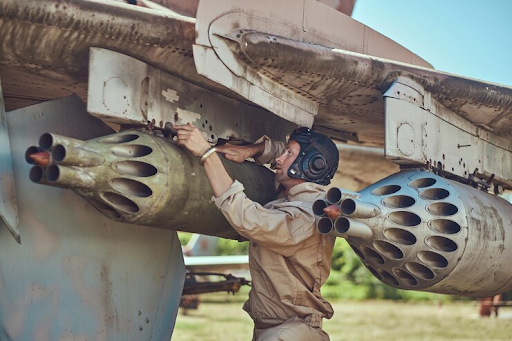Working with experts will result in a successful project. Due to the significance of the job, for instance, defence engineering employs intelligent and skilled individuals. They must maintain global peace in times of war or conflict. This is accomplished by developing protective equipment and tools at a cost.
Read this post to learn more about defence engineering and its various roles. For additional assistance in finding experts and tools in the field of defence, it is best to visit https://www.bendtechdefence.com.au/.
About Defence Engineering
Defence engineering helps to develop a variety of technologies that foster peace between conflicting nations. Engineers are involved in the creation of tools like airplanes, vehicles, and anything else that can be used as a sort of protection during a military dispute.
These innovations are best suited for the government, but many businesses in the private sector are also utilizing them. As a result, defence engineering has developed more solutions to satisfy the requests of each client. To come up with new ideas for meeting the growing demand for such advancement, defense engineers really benefit from the new technology.
Main Functions of Defence Engineering
Engineers in the defence industry are extremely adaptable. The best is working as an engineer in a submarine, where you protect the ocean during wars. They frequently work in a dockyard to inspect each important office for improved security. There is a similar set of functions that defence engineers must do. It consists of:
- Problem Solving
The client and experts will discuss the issue to determine how engineers can assist. Managing a problem will be simpler thanks to their expertise and insight. This comes with intensive research to quickly deal with the issue.
- Finding Alternatives
Conflicts may arise during the resolution of a problem. Consequently, it is necessary to gather a set of solutions to deliver high-quality projects. Defence engineering will strategize and look for the most cost-effective option until they find the best one. Engineers are good at starting from scratch when looking for solutions that would fulfill the client’s demand.
Engineering projects require approval from the client. The engineer needs to put in more effort because the client decides whether to accept or reject the product. Since waiting for feedback will take time, consider additional concepts for revisions.
- Designing and Testing Tools

To conclude, the defense engineer can begin working on the project once the client accepts it. The entire procedure should be addressed to the client to know whether it meets the need.
How Defence Engineering Varies From Its Counterparts?
Like other engineering professions, defense engineering focuses on creating solutions that meet a specific need. It is necessary for large infrastructure and banks, two industries with a higher risk of tensions and attacks, to rely on defence engineers. The following reasons make this engineering field different from the others:
- Work Coverage
Defense engineering is crucial for sectors that require a higher level of protection. Engineers will be in charge of developing the existing technologies, which demand a great deal of experience and expertise. To put it another way, they need to be good for the defense industry.
- Responsible for Military Projects
There are a lot of risks in the military, so engineering solutions are needed to help people who are most at risk. Because they are more focused on other types of work, other engineering fields are unable to assist with this kind of work.
In human history, there was a significant need for military technology, particularly during the Second World War. This is when defence engineering first began developing military-specific solutions.
The production of defense tools has grown and become more visible over time, which has led to many new inventions like tanks that have never been used before. They built the very first tank in 1915, which was used in the 1916 war. Since then, tanks have evolved into useful weapons against wars.
Aerial drones and other large-scale projects in the 21st century continue innovation. Given the rapid advancement of technology, this is thought to benefit future conflicts. Defence contractors offer affordable drones to other customers with limited financial resources.
- Makes No Room For Mistakes
When it comes to protecting a nation, there is no room for an average output. Heavy-duty devices of sufficient strength to safeguard a nation from danger necessitate the use of the finest materials. One mistake can put many lives in great danger.
Engineers should make innovations useful and effective. This includes improving the functionality and durability of existing tools and other communication devices that are necessary for wars.
- More Expensive
Defence technology can be more expensive to develop than other engineering solutions. Over time, superior devices require substantial budgets, and pursuing a career in defence can also be costly.
Despite everything, defence engineering provides military forces with services that are superior to anything else in engineering. Because these innovations can resolve conflicts between nations, all of the costs will be worthwhile.
Final Thoughts
Defence engineering exists all over the globe for peace and order. It has already designed thousands of war solutions to protect nations. The people behind every durable tool are well-equipped and competent to guarantee the best outcomes. It is a difficult career path and so requires years of study and experience before you get a job.




